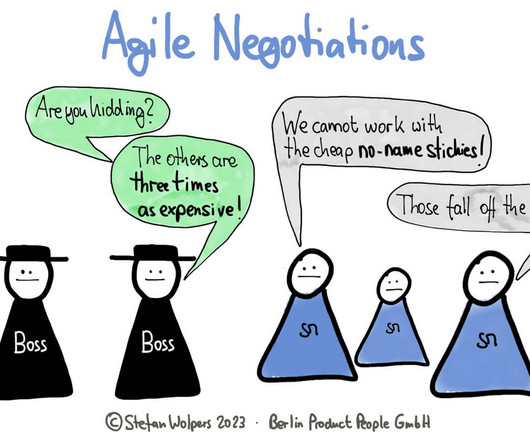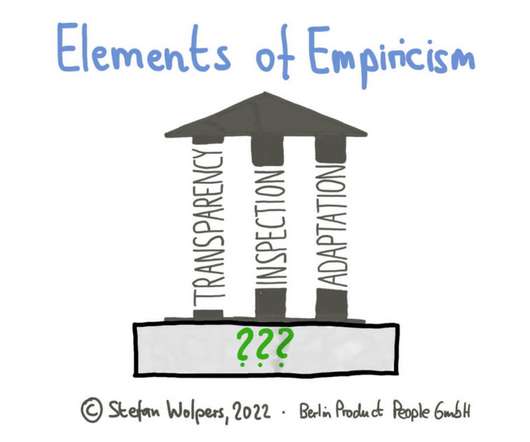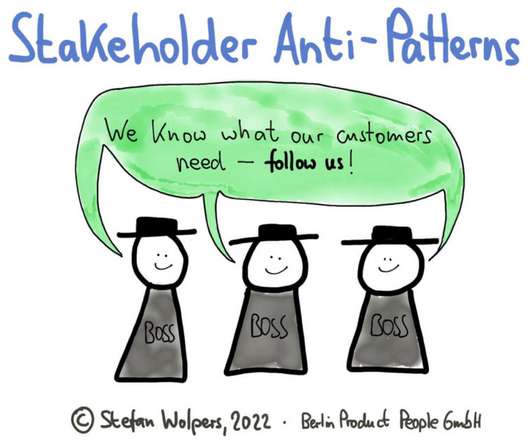Agile Negotiations — Life Is a Negotiation; Why Would Scrum Be Different?
Scrum.org
MAY 8, 2023
So let’s have a look at some typical agile negotiation scenarios. ?? Zur deutschsprachigen Version des Artikels: Agile Verhandlungen – Das Leben ist Verhandlungssache; warum sollte Scrum anders sein? ? You can sign up here for the ‘Food for Agile Thought’ newsletter and join 46,000-plus subscribers.















Let's personalize your content